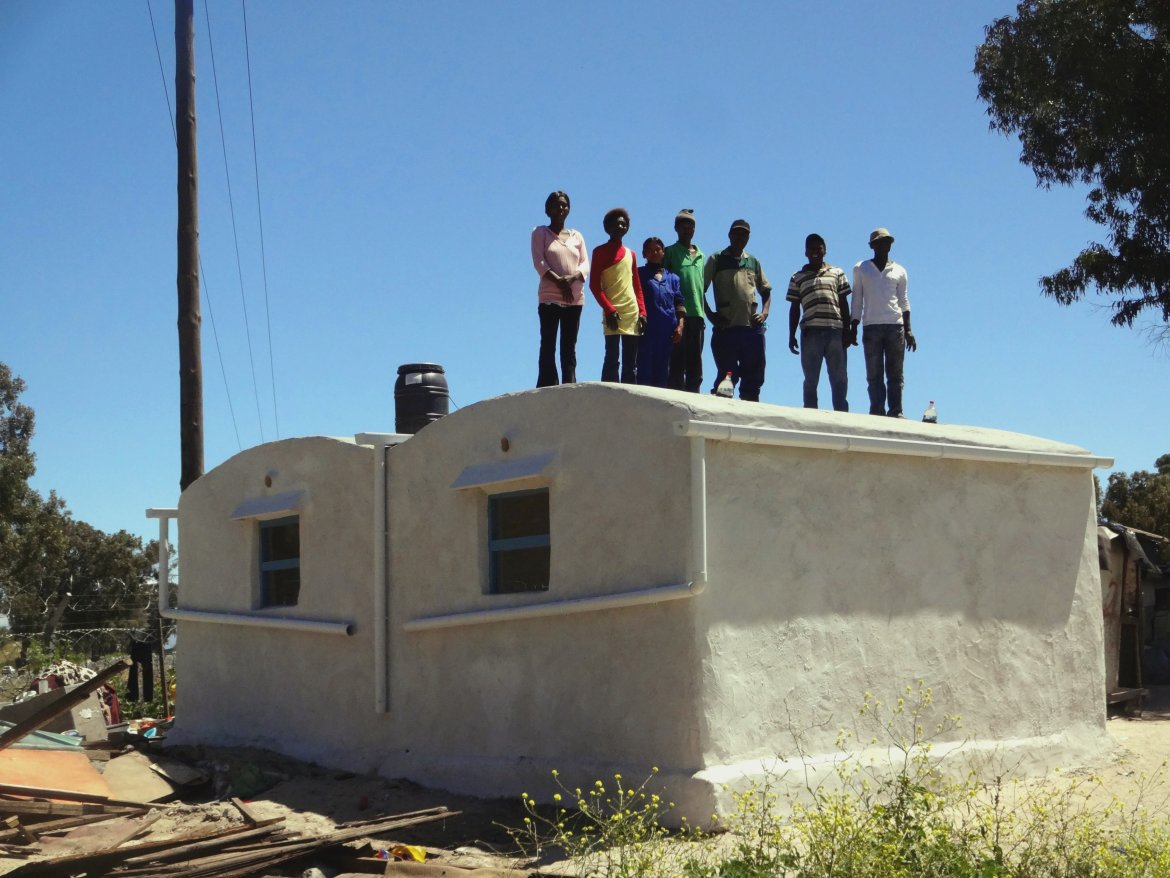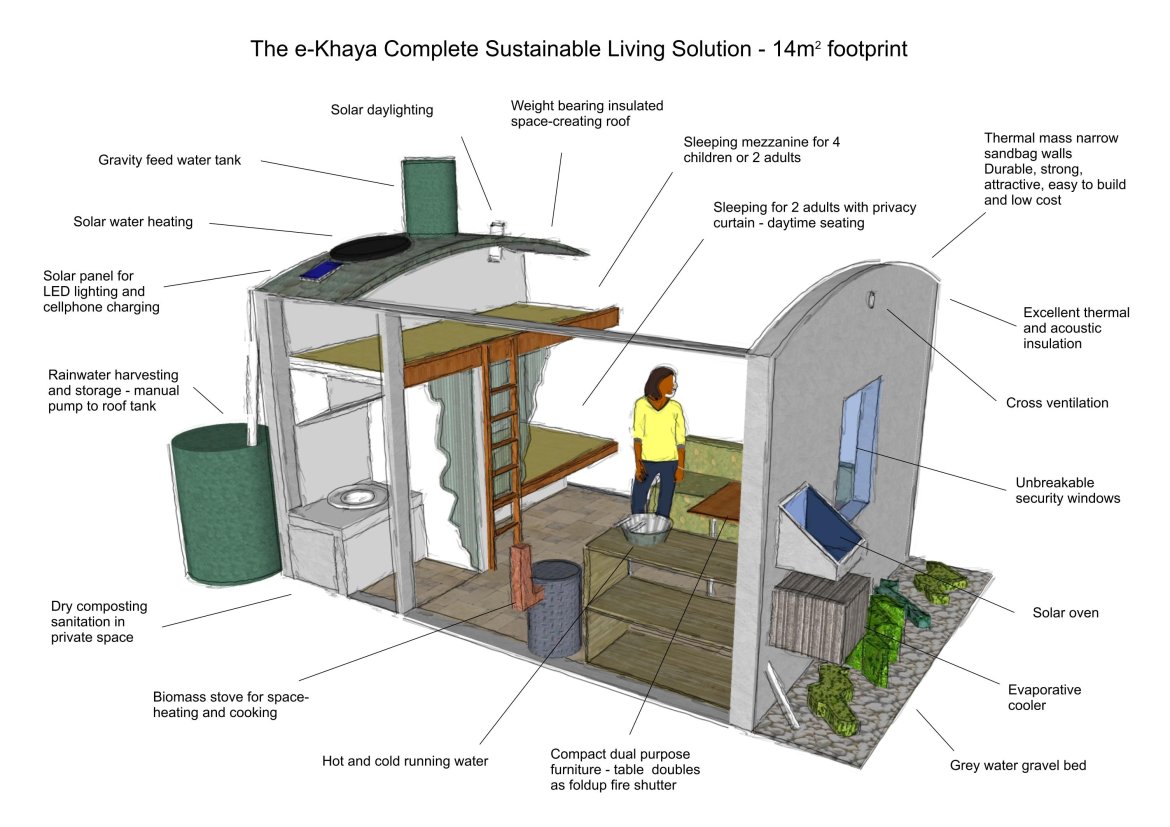e-Khaya is designed to be a transitional home for those currently living in shacks in informal settlements, until they are provided with permanent housing.
e-Khaya has continued to evaluate the living experience of the occupants of the Blue Downs community e-Khaya project. They relate that their experience, through a range of cold and wet to hot and dry conditions, is a complete transformation in their lives - now comfortable, peaceful and safe.
As part of growing the project, e-Khaya is exploring a partnership with Heart Capital to develop a micro-enterprise model whereby township entrepreneurs are upskilled to manage their own construction entities, building transitional homes and manufacturing the ‘green’ components, in their communities. They are also planning to build a variety of projects in the Stellenbosch and Philippi area, with Heart Capital and the Stellenbosch Innovation District which will showcase the e-Khaya structure and associated sustainable technologies. These may include
- Rainwater harvesting, water storage tanks and simple manual transfer pump
- Solar lighting, cellphone charging and ‘solar daylighting’
- Solar water heating with hot and cold running water
- Grey water management
- Biomass stove for cooking and space-heating
- Solar cooking oven and solar ‘coolbox’
- Unbreakable security windows
- Mezzanine sleeping areas
- Simple compact furniture
The team is also now researching a dry composting sanitation and ‘wet-waste’ system that will be incorporated into a ‘bathroom’ in an e-Khaya, thus contributing to privacy, dignity and safety. These systems will form part of a service micro-enterprise, based on creating a useful resource from what is currently a noxious problem.
Discussions with the Department of Science and Technology are underway to explore whether pilot projects in other parts of South Africa would be viable.
e-Khaya continues to research and develop ‘low-cost sustainable living solutions’ that will help address current social, economic and environmental challenges created by the crisis of rapid urbanisation.
If you are working on innovative solutions such as this, join the 110% Green Better Living Challenge at http://betterlivingchallenge.co.za


